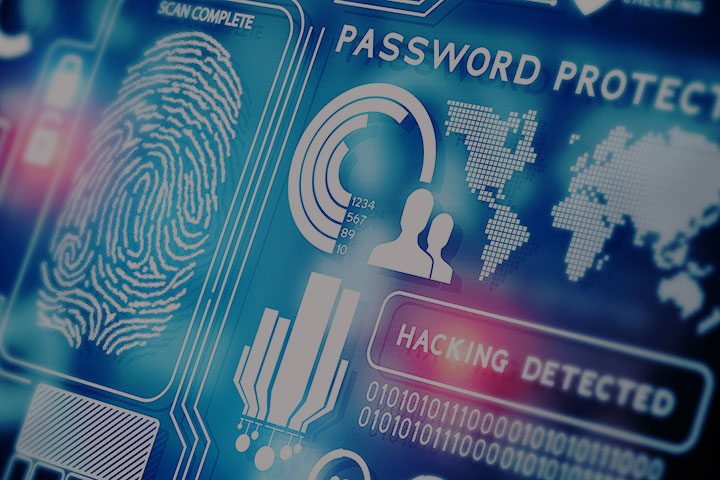Unless you’re totally oblivious to what goes on in the outside world, you may have been alarmed by the many reports of “hacked” digital data. That means that information about us that we thought was protected and secure has been breached, basically stolen by parties known or unknown.
If you need a refresher, some of the most notable recent hacks that we know about include one billion Yahoo user accounts, in 2013 and in 2014, 500,000 million users, the hack by the Chinese of 22 million Office of Personnel Management accounts, and the 2015 hack of almost 80 million patient and employee records from health insurer Anthem , the 2017 Equifax data breach that exposed sensitive personal information of over 147 million customers; ; in 2021, the LinkedIn data breach hit a massive 700 million users; ; and a 2022 /2023 Twitter data leak affecting over 200 million accounts — those, in addition to countless other large or small hacks yet to be detected or reported.
Public reaction to these hacks seems to range from outrage to a resigned “so what” view that nothing can be done about it so why worry. No matter what your reaction, you need to be aware that the internet has an infinite amount of financial and personal information about all of us and it comes from everything from credit card accounts, banking and investment accounts and tax documents to social media accounts like Facebook to your personal emails and those photos, videos and music collections you’ve stored in the cloud.
Safeguards You Can Take
Admittedly, there’s no absolutely foolproof way you can protect your digital information from internet vandalism, but you can take a few steps that offer some protection. These do require your active participation and vigilance, and that is time-consuming and not easy. These steps include:
- Make an inventory of your digital world, including your computer, tablets, mobile phones, financial accounts, social networks, and anything else that might or does contain personal information. Is that information backed up into the Cloud or some other device? Can your family access that information in case you are disabled or deceased?
When you complete that inventory, you need to let a trusted individual know where you keep it, either on a thumb drive or with a printed copy safely stored in a waterproof, fireproof safe or a safe deposit box.
- You need to be sure you have strong passwords. Avoid using proper names and dates and anything too obvious, which would be easy to crack. Simply using a random assortment of letters, numbers and symbols creates a strong password, but one that is hard, if not impossible, to remember. A password management service, such as DashLane, KeePass, 1Password, Roboform, Bitwarden, and LastPass, is a good way to securely keep track of all of your passwords. These services will generate and store unique passwords for all of your accounts as well as sync access across all your devices. Some of these services include two-factor authentication.
If you do use one of these services, you will need to create a single master password which you will use to gain access to all of your encrypted data. Make sure that master password is unique, secure and something you will never forget. Writing it on a sticky note stuck under your computer won’t do.
- To safeguard your data, back up the files on your computer and other devices. Cloud-based services include those offered by Arcseve ShadowProtect SPX, idrive.com, sugarsync.com and carbonite.com, among others, but be sure whichever service you choose offers security features such as encrypting the data before it leaves your computer and other devices.
- You need to give someone you trust written permission and instructions on how to manage your digital assets in case of emergency or if it becomes necessary if you become disabled or when you die. You might also consider including the information in your estate planning documents.
- Keep checking your credit reports. A credit monitoring service watches for accounts you did not open, which is something hackers do, and also checks for surges in balances and any other abnormal activity. A number of online monitoring services are available. A 2024 report by Forbes provides a helpful review of the top credit monitoring services.
You also should check into identity theft protection services since credit monitoring services do not identify theft. Hackers can use your name and social security number to open accounts and run up bills without your knowledge. Notify the police in the event of identity theft and file an identity theft incident report. You can use an identity theft incident report to help straighten out your credit and identity issues.
The Takeaway
Whether the hacks are done simply for thrills or for financial gain, you need to pay attention. The internet is not a safe place for your private information. That means you can’t ignore the real possibility that the personal and financial information scattered throughout the internet won’t be used by someone else for more than ordering a pizza or buying something on Amazon.
You also need to remember that your digital data is there forever. If you want your information to remain private while you are still alive, you need to be proactive and take the time and effort to protect your information as well as you can. It may not be perfect, but it will be far better than doing nothing and just assuming your information will be safe.
(This article was updated June, 2024 since it originally published January, 2017.)
